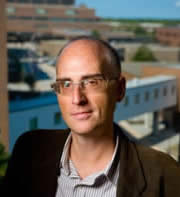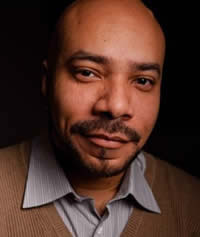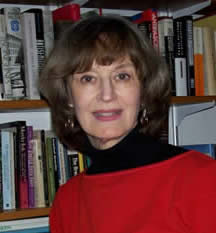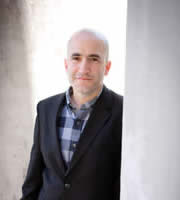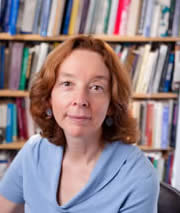2012-2013
Graham Hammill
Professor
English
539 Clemens Hall
Website
Email
States of Nature and Early Modern Rights Talk in Seventeenth-Century England
States of Nature and Early Modern Rights Talk is an interdisciplinary book project that examines claims about human nature, culture, and the environment at work in ideas about natural right in seventeenth-century England. A broad range of historians and critical legal theorists, focusing almost exclusively on the political philosophy of Hobbes and Locke, have argued that seventeenth-century English ideas about natural right founded the liberal concept of the rights-bearing individual. By looking at political philosophy alongside scientific, literary, and cultural representations of nature, this project investigates historical relationships between natural rights and the ecological contexts within which rights were posited and theorized. This project also explores continuities between early modern rights talk and contemporary issues including marriage rights, the definition of the human that rights talk assumes, and the conflicts between cultural experimentation and normative concepts of justice.
Graham Hammill is Professor of English at the University at Buffalo, SUNY. He is the author of Sexuality and Form (Chicago 2000), The Mosaic Constitution: Political Theology and Imagination from Machiavelli to Milton (Chicago 2012), and co-editor of Political Theology and Early Modernity (Chicago 2012). He has published numerous articles on early modern literature, political thought, and the history of sexuality.
Erin Hatton
OVPR/HI Fellow
Assistant Professor
Sociology
464 Park Hall
Website
Email
Working But Not Employed
Since the 1930s, the central battleground for worker rights in the U.S. has been defined by a series of employment and labor laws–the Fair Labor Standards Act, the National Labor Relations Act, and the Occupational Safety and Health Act, among others. Activists, policymakers, and scholars concerned with worker rights concentrate their efforts on this battleground, campaigning to enforce or strengthen these laws. However, they tend to overlook an important fact: A significant number of workers in the U.S. are not considered “employees” by such laws and, therefore, are not covered by these workplace protections. In this project, I examine three of the largest categories of these “non-employed” workers in New York State: domestic workers (nannies, housecleaners, and caretakers for the elderly), workfare workers (welfare recipients required to work in return for welfare benefits), and prisoners who work in publicly- or privately-run factories while incarcerated. To various degrees, each of these groups of workers has been excluded from legal definitions of “employee,” and each has challenged their exclusion. Through in-depth interviews with each of these groups, I explore the nature of work and the struggle for worker rights beyond the boundaries of the law–an arena of growing importance in a world where capital is increasingly mobile and the reach of the New Deal is increasingly limited.
Erin Hatton is an Assistant Professor of Sociology. She came to UB in 2008 after completing her PhD at the University of Wisconsin-Madison. Her research falls squarely within the sociology of work, while also extending into the fields of gender, race, labor, political economy, and public policy. Her first book, The Temp Economy: From Kelly Girls to Permatemps in Postwar America (Temple University Press, 2011), brings these themes together in an examination of the temporary help industry and the rise of the new economy. Her new book project, Working But Not Employed, examines the widespread and growing use of “non-employed” workers.
John Jennings
OVPR/HI Fellow
Associate Professor
Visual Studies
202 CFA
Website
Email
Conjuring the Past: An Ethno Gothic Graphic Narrative Project
His book project is a graphic narrative that investigates the Policy Era in 1930s Chicago, Illinois. Policy was the common name for a numerically based game of chance that migrated up from the south with the thousands of African Americans who made the trek to the Windy City looking for a better life. The story is a historical fiction narrative set in Bronzeville; the south side of Chicago which was designated as the only space where African Americans could reside. The narrative is multimodal in nature. It utilizes the medium of comics as a storytelling device but also fuses the graphic aspect with prose. This reflects the hybrid nature of the story which is a combination of pulp-noir-detective story fused with supernatural thriller.
This use of the supernatural in the narrative explores what he calls the Ethno Gothic; the use of Gothic tropes viewed through a critical race perspective. The function of the Ethno Gothic is to discover, unpack, and exorcise the revenants left by segments of American history that still haunt and undermine equality in our society. His project would also entail an exhibition of artwork generated from his research for the book and, if possible, a symposium examining the importance of the Policy Era in American history.
John Jennings is an accomplished designer, curator, illustrator, cartoonist, and award-winning graphic novelist. His work overlaps into various disciplines including American Studies, African American Studies, Design History, Media Studies, Sociology, Women and Gender Studies, and Literature. His research and teaching focus on the analysis, explication, and disruption of African American stereotypes in popular visual media. His research is concerned with the topics of representation and authenticity, visual culture, visual literacy, social justice, and design pedagogy. Jennings is co-author of the award winning graphic novel The Hole: Consumer Culture and Black Comix: African American Independent Comics Art + Culture.
Carolyn Korsmeyer
OVPR/HI Fellow
Professor
Philosophy
110 Park Hall
Website
Email
Things: In Touch With the Past
Genuineness is a property of objects that are rare, old, or preserved as memorials. Being genuine enhances economic value for objects such as works of art, and it is obviously important for historical purposes, such as assessing the artifacts from a past culture. It is less clear that genuineness is an aesthetic property, for the difficulty of distinguishing an original thing from an excellent replica “just by looking” would seem to preclude genuineness from aesthetic relevance.
She argues the contrary: that genuineness delivers an aesthetic experience of a unique sort—an encounter that puts us in the presence of the past. She contends that the sense of touch covertly operates in such experiences, as this sense conveys the impression of being in contact with the “real thing.” However, old objects are the least likely to be the “same” as they were at their original making, having been damaged and restored over time. Under these circumstances, is the value accorded genuineness sensible or irrational? An apprehension of something real or a pleasant delusion? This project investigates the nature of such experiences and the conditions of “sameness” that obtain with artifacts that are valued for being genuine.
Carolyn Korsmeyer is Professor of Philosophy at the University at Buffalo. Her specialties include aesthetics and emotion theory, fields which she combined in her recent book, Savoring Disgust: The Foul and the Fair in Aesthetics (2011). She investigated the sense of taste in Making Sense of Taste: Food and Philosophy (1999) and in the edited collection, The Taste Culture Reader (2005). She is a past president of the American Society of Aesthetics.
Dalia Muller
Assistant Professor
History
563 Park Hall
Website
Email
The Fate of an Island, The Fate of a Continent
The Fate of an Island, The Fate of a Continent: Mexicans, Cubans, Spaniards and the Cuban Question examines the impact of the Cuban independence movement in Mexico during the late nineteenth century. Between the 1860s and 1890s, Mexico became an important destination in Latin America for both refugee Cubans and immigrant Spaniards who were locked in an ideological and physical struggle over Cuba, one of Spain’s remaining American colonies. As a result, Mexico became a key site where the fate of Cuba was actively, aggressively and publicly debated, and where Mexicans, caught in-between factions, took sides on the “Cuban Question.” The Cuban Question, as it came to be known across the Americas and beyond, refers to political debates surrounding the movement for Cuban independence that spanned the last third of the nineteenth century. My project explores the dynamic interactions between Cuban political exiles, Mexican journalists and members of the Spanish immigrant community in Mexico during the 1890s as they debated Cuba’s fate in the wake of the third and final war for Cuban independence. I argue that in order to understand the widespread impact of the Cuban Question in Mexico, we must pay close attention to the way Cubans, Mexicans and Spaniards manipulated existing transnational ideologies to draw equivalences between Cuba’s particular situation and that of Latin America as a whole. It is the imagined connection between island’s fate and that of the continent that made Cuba’s future so deeply relevant to Mexicans and other Latin Americans.
Dalia A. Muller is a historian of Latin America and the Caribbean whose work focuses on travel, exile, and immigration in the nineteenth and twentieth centuries greater Caribbean. She is completing her first book project, which examines the impact of the Cuban independence struggle in nineteenth-century Mexico. Her article, “Latin America and the Question of Cuban Independence” has been recently published in The Americas. She received her Ph.D. from the University of California, Berkeley.
Justin Read
Associate Professor
Romance Languages & Literatures
905 Clemens Hall
Website
Email
Alternative Functions: The Spatial Poetics of Latin American Modernization
Alternative Functions critiques the urbanization of Latin America, through readings of poetry from Argentina, Brazil, Mexico, and Peru. It examines how the poetry of the early 20th century (ca. 1900-1930) worked to re-map the relation between urbs and civitas throughout Latin America. It then relates the “poetics of space” to other art-forms and disciplines including architecture, urban planning, prose literature, and digital media in the region’s emerging megalopolises from 1930 to the present day. More than simply providing “representations of space” (or maps), Alternative Functions argues that poetics itself has been reformulated in Latin America as a critical “representational space” capable of re-configuring power relations with respect to the spatial practices of everyday life in the city.
Justin Read is Associate Professor of Romance Languages and Literatures. He currently researches Latin American modernism in literature and architecture, particularly those of Brazil. His first book, Modernist Poetry and Hemispheric American Cultural Studies, was published by Palgrave Macmillan in 2009. He co-organized the UB Humanities Institute’s “Fluid Culture” series in 2011-12.
Tamara Thornton
Professor
History
568 Park Hall
Website
Email
Nathaniel Bowditch: The Business of Science and the Science of Business in the Early Republic
This study of Nathaniel Bowditch (1773-1838)–navigator, businessman, and scientist–addresses four issues of scholarly significance: the nature of social elites in a republic, the functions of historical memory, the practice of science in early nineteenth-century America, and the emergence of new capitalist practices and values, especially as these were informed by contemporary science. Bowditch’s recruitment into the Boston elite illustrates the selective permeability of class boundaries, suggests the role of professional expertise in elite formation, and illuminates the phenomenon of social elites in a nominally egalitarian republic. Biographical and autobiographical accounts of Bowditch as the self-made man cast light on the development of the individual as the unit of identity and achievement in the post-revolutionary era. Drawing on science as both a set of practices and a body of ideas, Bowditch subscribed to a set of values and a vision of the world that prized precision, order, system, and regularity above all. Such values suffused his practice of business, but extended beyond the narrowly economic. In Bowditch’s career, we can trace the emergence of modern capitalist culture and detect its links with the pursuit of science as a set of occupational practices and a vision of the universe.
Tamara Plakins Thornton focuses on the cultural history of the United States between the Revolution and the Civil War. She is the author of Cultivating Gentlemen: The Meaning of Country Life among the Boston Elite, 1785-1860 (Yale University Press, 1989), and Handwriting in America: A Cultural History (Yale University Press, 1996). She was awarded the Ralph D. Gray Article Prize for an essay published in the Journal of the Early Republic in 2007. Most recently, her essay on “Capitalist Aesthetics: Americans View the London and Liverpool Docks,” appeared in an edited collection titled Capitalism Takes Command: The Social Transformation of Nineteenth-Century America (University of Chicago, 2012).
Krzysztof Ziarek
Professor
Comparative Literature
645 Clemens Hall
Website
Email
Language After Heidegger
This book is intended as an interdisciplinary study, bringing together literary studies, continental philosophy, and linguistics. As the title indicates, it explores both language according to Heidegger, or in other words Heidegger’s idiomatic approach, and also language after Heidegger, that is, how we can think differently about language thanks to Heidegger. This is the case because Heidegger’s approach to language is non-Saussurean. To put it most simply, Heidegger does not base his conception on the notion of the sign (signum) and signification. Language for him is not a system of signs, but rather on the way to signs, and cannot be thought, therefore, within the perspective of the metaphysical notions of phone semantike and zoon logon echon. By contrast, much of the reception of and response to Heidegger’s work in English has been mediated by the work of French post-structuralist thinkers who have formulated and have been themselves formed by critically responding to structuralism, both inheriting and reformulating Saussure’s famous account of language as a system of signs. Against this backdrop, his study articulates the singular and innovative—poietic–approach offered by Heidegger.
Krzysztof Ziarek is Professor of Comparative Literature at the State University of New York at Buffalo. He is the author of Inflected Language: Toward a Hermeneutics of Nearness (SUNY ), The Historicity of Experience: Modernity, the Avant-Garde, and the Event (Northwestern), and The Force of Art (Stanford).He has also published numerous essays on Clark Coolidge, Susan Howe, Myung Mi Kim, Stein, Stevens, Heidegger, Benjamin, Irigaray, and Levinas, and co-edited two collection of essays, Future Crossings: Literature Between Philosophy and Cultural Studies (Northwestern) and Adorno and Heidegger: Philosophical Questions (Stanford). He is the author of two books of poetry in Polish, Zaimejlowane z Polski and Sąd dostateczny. He is currently working on a manuscript entitled “Language After Heidegger.” His other current work focuses on the “disappearance” of world in the age of globalization and on the post-Heideggerian notion of being human.
